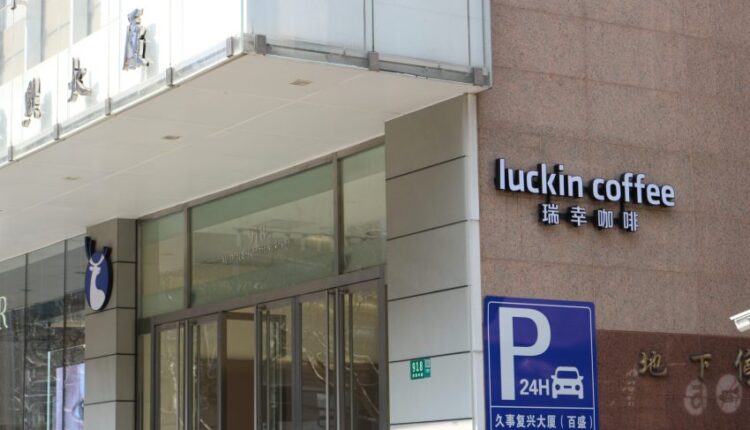In China, Starbucks Feels the Heat From Homegrown Coffee Chains
Starbucks, a popular coffee chain in China, has faced criticism for its customer service policies. In the first quarter of 2024, Starbucks’ sales in China plummeted by 11%, with the average order price also dropping by 8%. This has led to the company’s first decline in quarterly sales within the past three years, with same-store sales in the Chinese market expected to decline in the single digits.
Despite its extensive network of over 7,000 stores generating billions of yuan in annual sales since its 1999 debut, Starbucks is struggling with fierce competition from local brands such as Luckin Coffee, which offers more affordable alternatives. In 2020, Starbucks held a 16.2% market share among café and bar brands in China, falling to 13.6% by 2022. In contrast, Luckin Coffee’s market share rose from 3.3% in 2020 to 9.1% in 2022, eventually overtaking Starbucks in 2023 to lead China’s coffee sales.
Luckin Coffee’s rapid ascent has ignited a fierce price war among domestic coffee chains like Cotti and Nowwa. Eager for a larger market share, many of these competitors are prioritizing immediate revenue over sustainability, offering popular coffee options for as low as 9.9 yuan. Starbucks charges 27 yuan for a tall Americano and up to 43 yuan for specialty cold brews. The price war has shown that coffee is a daily necessity that should be affordable, but the high prices at Starbucks no longer match the quality they offer.
During a January earnings call, Starbucks CFO Rachel Ruggeri underscored a slower-than-expected recovery in China’s coffee market, attributing it to heightened consumer caution. The company also pointed out that the decline in sales was primarily due to a reduction in occasional purchases. According to Yang Keke, a coffee brand consultant, the growth of China’s coffee market is primarily fueled by consumers seeking refreshment amid increasing work pressures. However, Starbucks struggles with price, quality, and availability.
Despite challenges in the market, Starbucks remains committed to deepening its presence in China. In a May earnings call, CEO Laxman Narasimhan outlined the company’s strategy to introduce more localized products, increase technical investments, and expand into smaller cities and counties. Starbucks founder Howard Schultz emphasized that Starbucks will not engage in the ongoing price wars but will instead focus on fostering community connections through quality coffee.
In recent months, Starbucks has upped promotional efforts, offering coffee for as low as 14 yuan on major e-commerce platforms. Chen Chen, a work-from-home designer from the eastern Jiangsu province, recalls fond memories of his college days spent at a nearby Starbucks, where sunlit seating and friendly interactions with baristas made it a cherished spot for group study. However, his recent visits have been disappointing due to a decline in the store’s upkeep and atmosphere.
Chen Chen defends the policy of asking non-purchasing visitors to leave, arguing it helps maintain a better environment for paying customers. He says: “It’s time to bring back a more likable Starbucks.”
Read More @ Sixth Tone
Source: Coffee Talk



